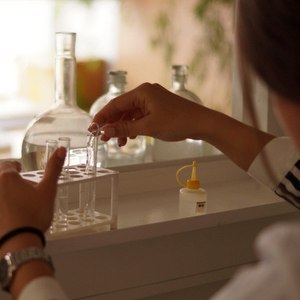One of the key processes of petrochemistry is hydrogenation of unsaturated hydrocarbons contained in oil. These hydrocarbons degrade properties of catalysts, as well as undergo rapid oxidation and resinification. It results in reducing quality of products produced out of oil, in particular fuel. Therefore, one of paramount tasks faced by chemists today is development of efficient and low-cost hydrogenation catalysts.
It is important to note that unsaturated hydrocarbons and their hydrogenation products are used to produce vitamins, pharmaceuticals, scented substances and other products. According to Roman Shafigulin, Associate Professor of the Department of Physical Chemistry and Chromatography at Samara University, for purification of oil fractions from undesirable unsaturated hydrocarbons, the most promising thing is applying effective and selective hydrogenation catalysts that allow obtaining high-quality refined petroleum products.
Scientists of Samara National Research University were managed to obtain an effective catalyst for hydrogenation of unsaturated hydrocarbons, based on environmentally safe and inexpensive mesoporous silica gel modified with dysprosium, lanthanum and silver.
“In industry, hydrogenation of diene and acetylene hydrocarbons contained in petroleum fractions is carried out on palladium-containing catalysts at high values of temperature and pressure. Key problems of the process are significant losses of olefins and a short service life of the catalyst,” commented Angela Bulanova, the supervisor of the research, Professor of the Department of Physical Chemistry and Chromatography at Samara University.
According to her, the obtained low-cost and efficient catalysts make it possible to purify oil from unsaturated hydrocarbons at lower values of temperature and pressure. Efficiency and selectivity of catalysts are maintained for a long time, which increases their service life, therefore, significantly reduces the cost of the process of removing unwanted unsaturated hydrocarbons from oil. Besides, extracted hydrogenation products can be used for synthesizing new substances.
The researchers hydrogenated mixtures of unsaturated hydrocarbons by using the installation developed at Samara University, and analyzed the reaction mixture at the gas chromatograph.
In future, the scientists plan to continue searching for inexpensive metals that are modifiers of mesoporous silica gel, and to study correlation between the modifier nature and the catalytic properties. The researchers also are going to develop catalysts for hydrogenation of aromatic hydrocarbons, for the purpose of producing environmentally friendly inexpensive polymers and other refined petroleum products.
The research was carried out in framework of the main scientific areas of the Department of Physical Chemistry and Chromatography, Samara University.
Samara University is a participant of the state support program for universities of the Russian Federation “Priority-2030.”
Source: ria.ru
